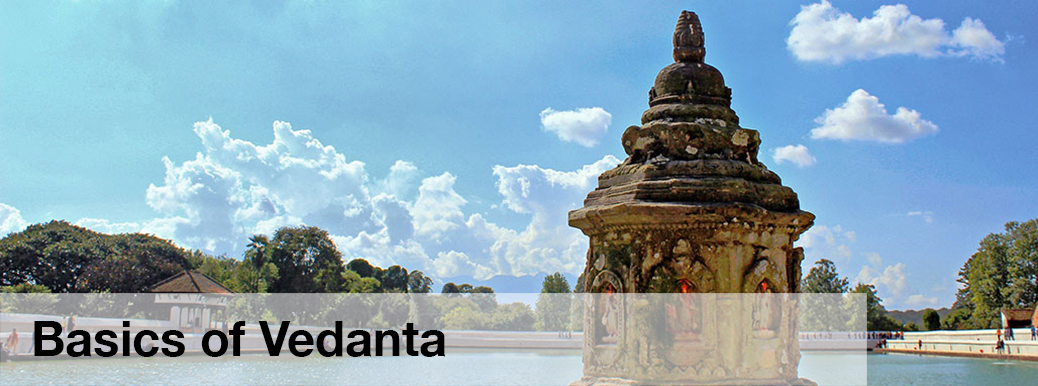
Module 1
What is Advaita Vedanta?
| 1.1 | Overview of Vedas |
| 1.2 | The 10 Main Upanishads |
| 1.3 | The Role of Scriptures |
| 1.4 | The Role of Vedanta |
| 1.5 | Is Vedanta Relevant Today? |

Module 3
What is Enlightenment?
| 3.1 | The Self – A Primer |
| 3.2 | The Role of Knowledge vs Experience |
| 3.3 | Common Myths about Enlightenment |

Module 4
Preparing the Mind for Self Inquiry
| 4.1 | The 4 Qualifications |
| 4.1.1 | Discrimination – Viveka |
| 4.1.2 | Dispassion – Vairagya |
| 4.1.3 | Desire – Mumukshutvam |
| 4.1.4 | Discipline – Shatka Sampatti |
| 4.1.4.1 | Shama – Mastery of the Mind |
| 4.1.4.2 | Dama – Mastery of the Sense Organs |
| 4.1.4.3 | Uparama – Focusing of the Mind and Sense Organs |
| 4.1.4.4 | Titiksha – Forbearance |
| 4.1.4.5 | Shraddha – Trust Pending Verification |
| 4.1.4.6 | Samadhana – Concentration of the Mind |
| 4.2 | How to Gain the 4 Qualifications? |
| 4.3 | Qualities of a Prepared Mind |

Module 5
Universal Values

Module 7
Self Knowledge
| 7.1 | The 3 Bodies |
| 7.2 | The 3 States |
| 7.3 | The 5 Sheaths |
| 7.4 | Atma – The Self |
| 7.5 | Creation |
| 7.6 | Isvara – The Concept of God |

Module 8
Practising Vedanta
| 8.1 | Managing the 3 Gunas |
| 8.2 | Karma Yoga |
| 8.3 | Upasana Yoga |
| 8.4 | Jnana Yoga |
| 8.5 | Law of Karma |
| 8.6 | Dharma |
| 8.7 | Bhakti |
| 8.8 | I Am Not The Doer |
| 8.9 | The 3 Stages of Enlightenment |



